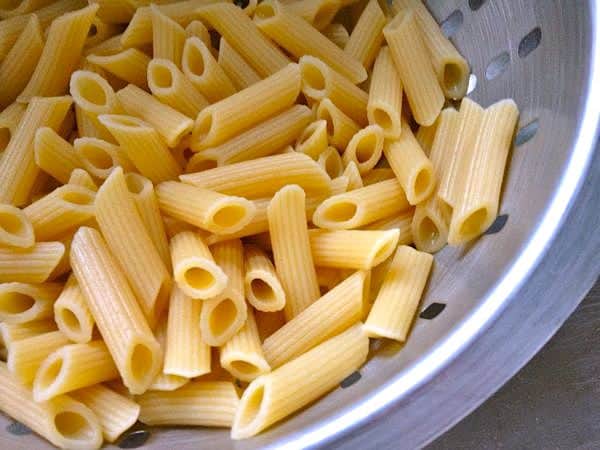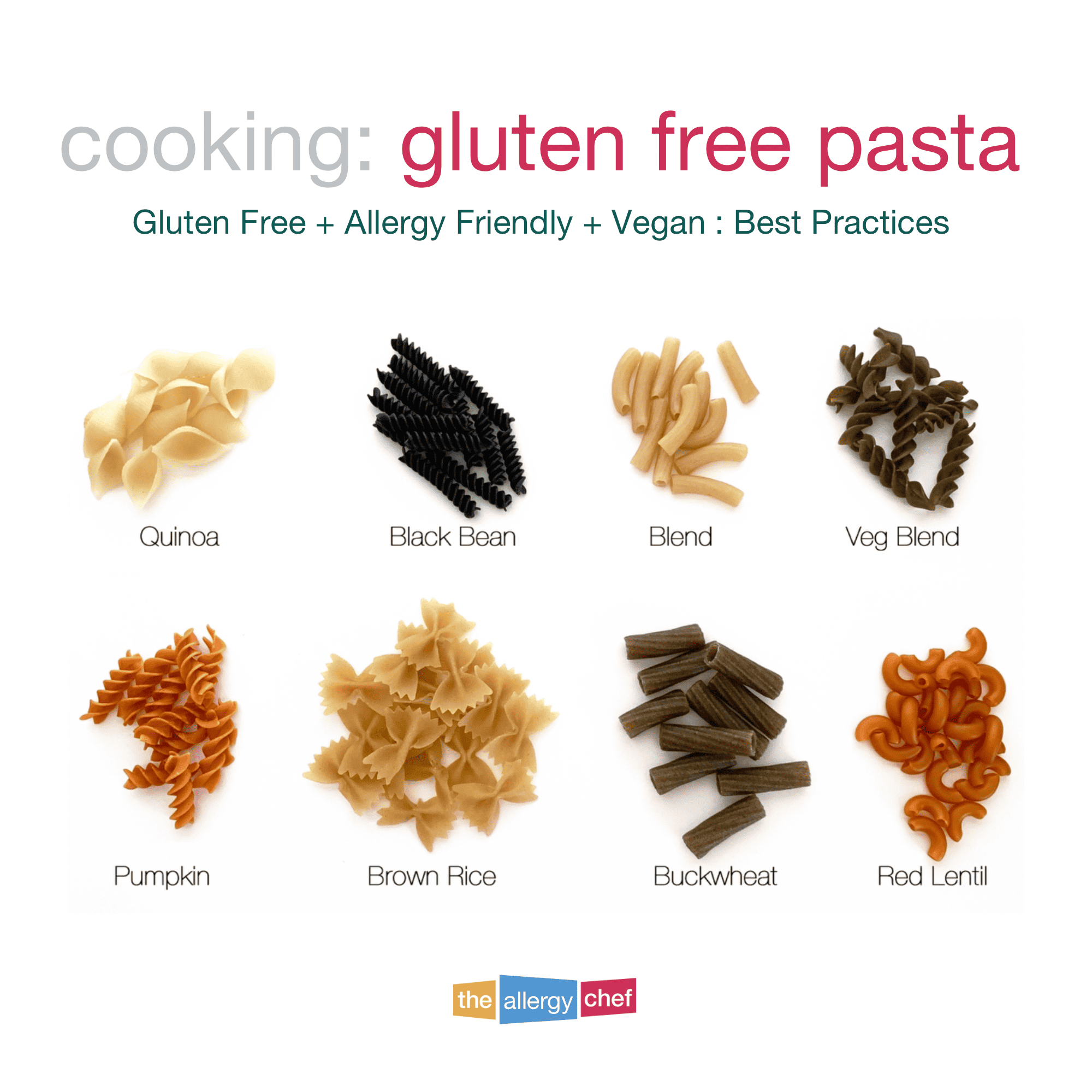Have you ever found yourself with leftover gluten-free pasta and wondered if you can reheat it without sacrificing taste and texture? You’re not alone.
Many people who love gluten-free meals face this dilemma. The good news is, there’s a way to enjoy your pasta as if it were freshly made. Imagine savoring every bite, with the same delightful texture and flavor that made you fall in love with it in the first place.
You’ll discover simple yet effective methods to reheat your gluten-free pasta, ensuring it remains as delicious as when it was first cooked. By the end, you’ll be equipped with the tips and tricks you need to transform those leftovers into a tasty meal. So, if you’re ready to make the most of your gluten-free pasta, read on to learn how!

Credit: theallergychef.com
Table of Contents
Reheating Gluten-free Pasta
Gluten-free pastacan be tricky to reheat. It often becomes mushy or dry. The lack of gluten makes it less stable. This is a common challenge. Gluten-free pasta needs special care.
Regular pasta holds up well. Gluten-free pasta does not. It can fall apart easily. Cooking it perfectly is hard. Reheating is even harder. These challenges make it frustrating.
Reheating on high heat is a mistake. It makes pasta dry. Adding too much water is bad too. It turns pasta mushy. Avoid microwaving for long. Use a pan instead. Stir gently to keep pasta intact.
Best Methods For Reheating
Reheat pasta on the stove for the best taste. Use a pan with a little olive oilor butter. Add the pasta to the pan. Stir gently to prevent sticking. Heat on medium. Add a bit of water if it’s too dry. The pasta will be ready in a few minutes.
Place pasta in a microwave-safebowl. Add a little water. Cover with a lid or damp paper towel. Heat for 1-2 minutes. Stir and check if it’s warm. Add more time if needed. Avoid overheating; it can make pasta rubbery.
Preheat the oven to 350°F. Place pasta in an oven-safe dish. Add a splash of water or sauce. Cover with foil to keep moisture. Bake for about 15 minutes. Check if it’s warm enough. The oven keeps pasta soft and tasty.
Maintaining Texture And Flavor
Gluten free pastacan be tricky to reheat. It often gets mushy. Choose a sauce that adds flavor and texture. Creamy sauces work well. They coat the pasta nicely. Tomato-based sauces can be good too. They add a tangy taste. Avoid oily sauces. They make pasta slippery.
A good sauce can save your dish. It helps keep moisture. Thick sauces stick better. They add richness. Mix the pasta well. Make sure sauce covers every piece. You want a tasty bite every time. Experiment with different flavors. Find what you like best.
Dry pasta is not fun. Add moisture when reheating. Use a little water. Chicken broth works too. Cover the dish while heating. Steam helps keep it soft. Don’t overheat it. That makes pasta rubbery. Check often while reheating. Stir to keep it from sticking. A small splash of olive oil can help.
Alternative Uses For Leftover Pasta
Turn leftover gluten free pasta into a tasty salad. Mix with fresh veggies and your favorite dressing. Create a hearty soup by adding pasta to chicken broth. Add some herbs and spices for flavor. Make a pasta bake with cheese and tomato sauce. Layer pasta and sauce, then bake until golden. Use pasta in a stir fry. Combine with veggies and a splash of soy sauce. Try making pasta pancakes. Mix pasta with eggs and fry on a pan.
Explore new dishes with leftover pasta. Create a cheesy pasta pie. Use eggs, cheese, and pasta in a baking dish. Bake until set. Make an easy casserole. Combine pasta with chicken and veggies. Top with cheese. Bake until bubbly. Enjoy these creative ideas for using leftover pasta. Transform your meal into something new and exciting.
Storage Tips For Gluten-free Pasta
Choose a container with a tight lid. This keeps the pasta fresh. Use a container that is glass or plastic. Ensure it is clean and dry before use. A tight seal prevents moisture from entering. Moisture can spoil the pasta. Containers with a snap-lock lid are best. These containers are easy to use.
Store the pasta in a cool place. Keep it away from heat and sunlight. A pantry or cupboard is ideal. Gluten-free pasta lasts about three to five days. Check for any spoiling signs before eating. Look for mold or any bad smell. If any, do not eat the pasta. Always check the expiration date on the package.

Credit: glutenfreebaking.com

Credit: theallergychef.com
Conclusion
Reheating gluten-free pasta is simple. Follow a few easy steps. Use a microwave or stovetop for best results. Add a bit of moisture to avoid dryness. This keeps the pasta tasty and fresh. Experiment with sauces and toppings. Enhance flavors and texture.
Enjoy your gluten-free meal with confidence. No need to worry about leftovers. Reheat and savor each bite. Perfect for busy days or quick meals. Gluten-free pasta can be delicious again. Enjoy and share with family or friends. A warm, satisfying meal awaits.

I am Brianna, a self-published author with a passion for sharing my knowledge and expertise on various topics with people looking to find the perfect items for their needs. I love ensuring that the right informative content is available to people looking for the right information. I am an avid horseback rider and reader when I am not writing.
Follow me on Facebook, TikTok, or Personal Blog.